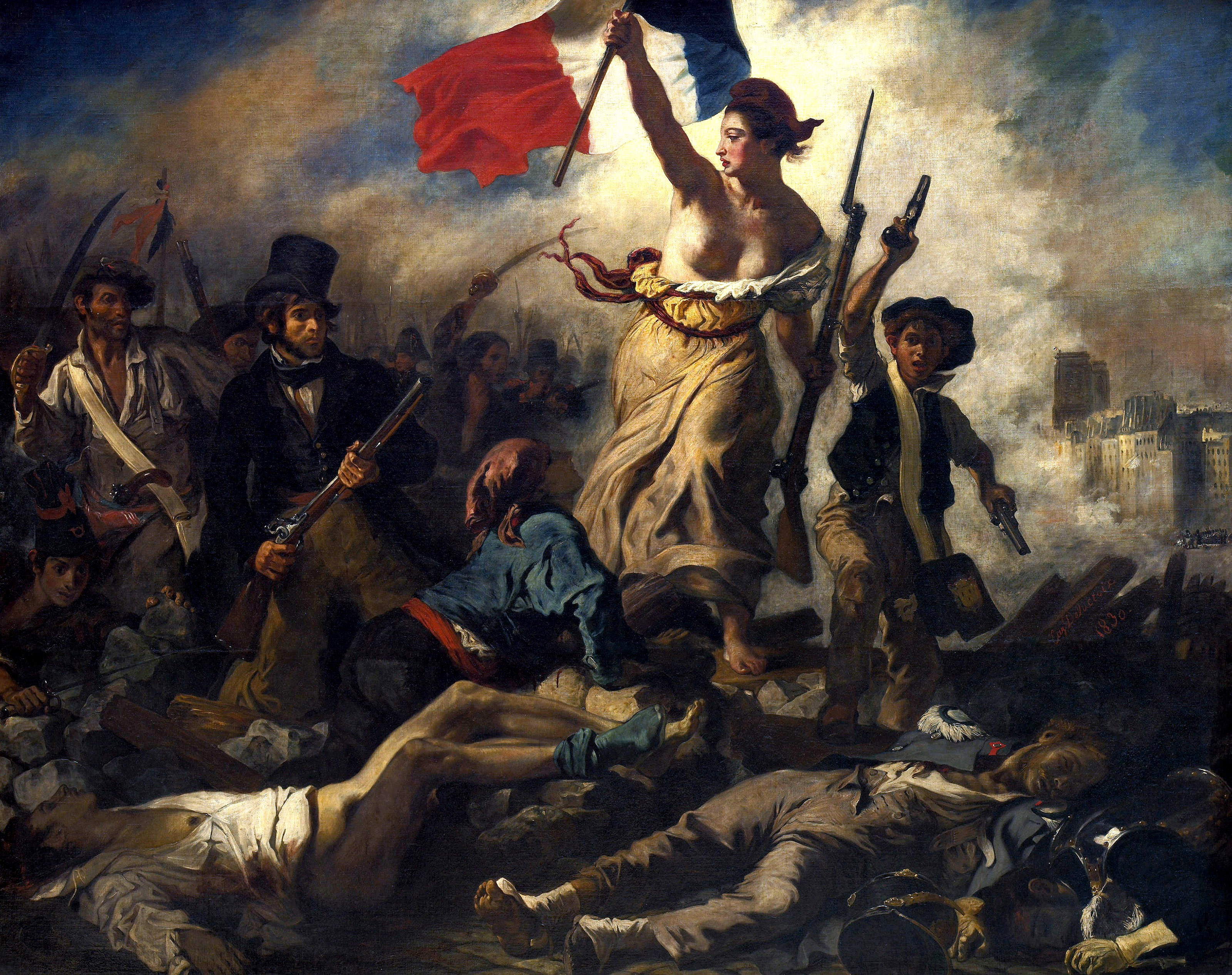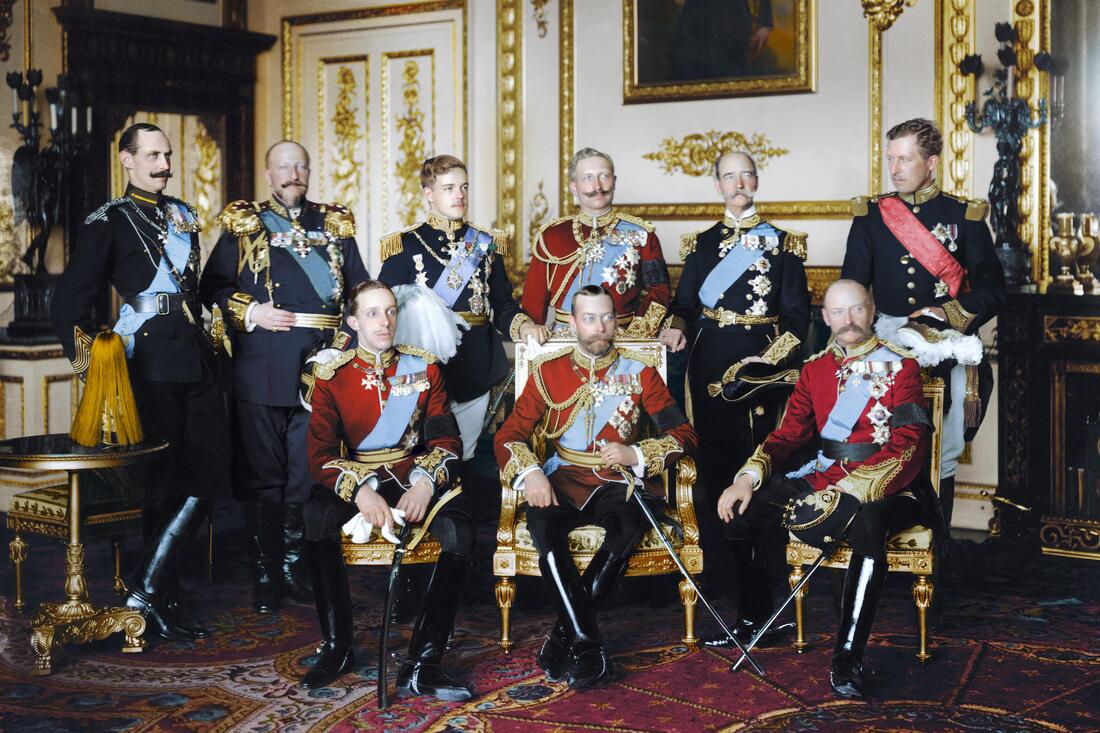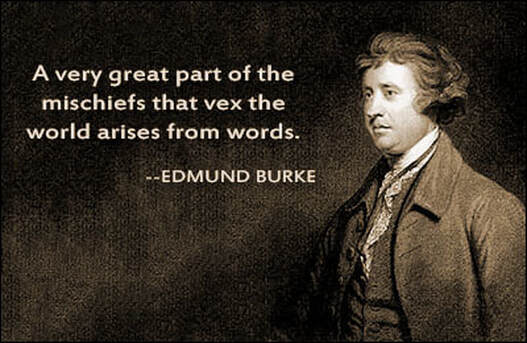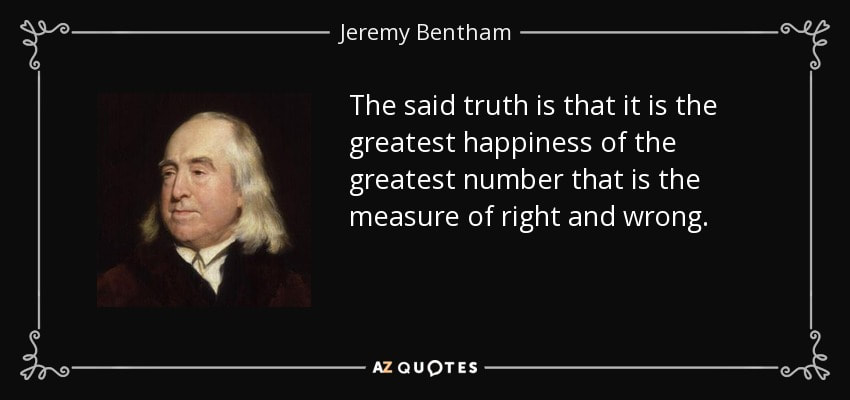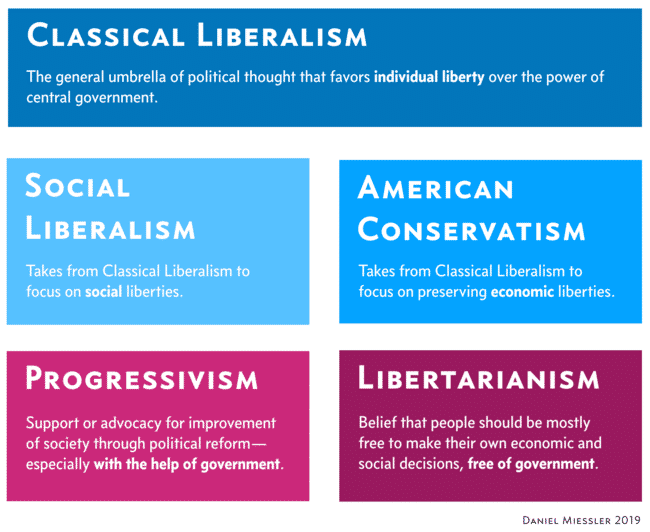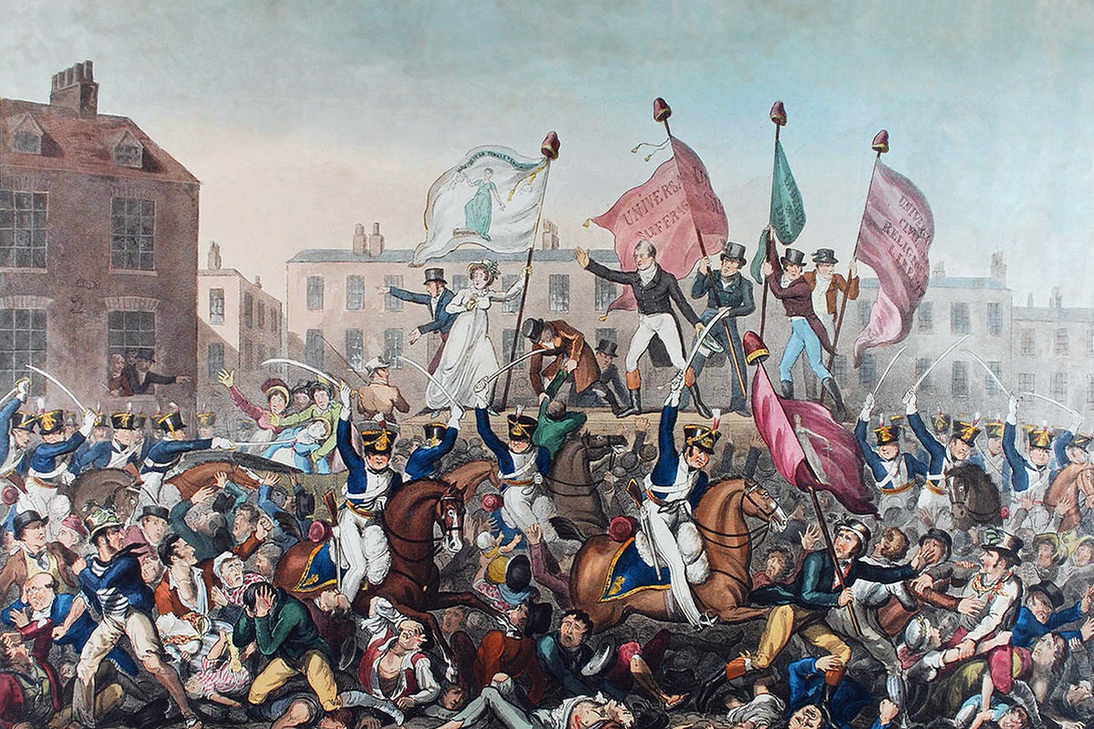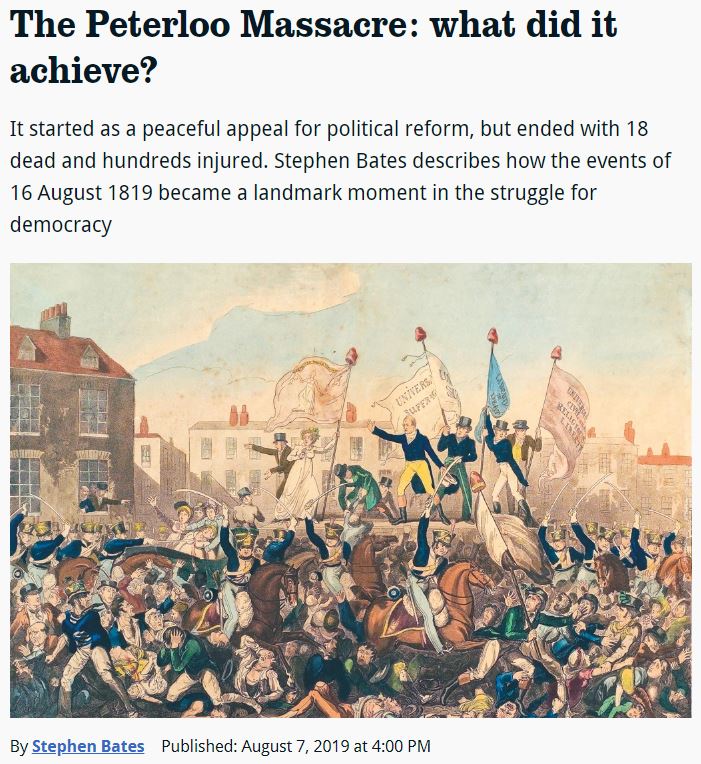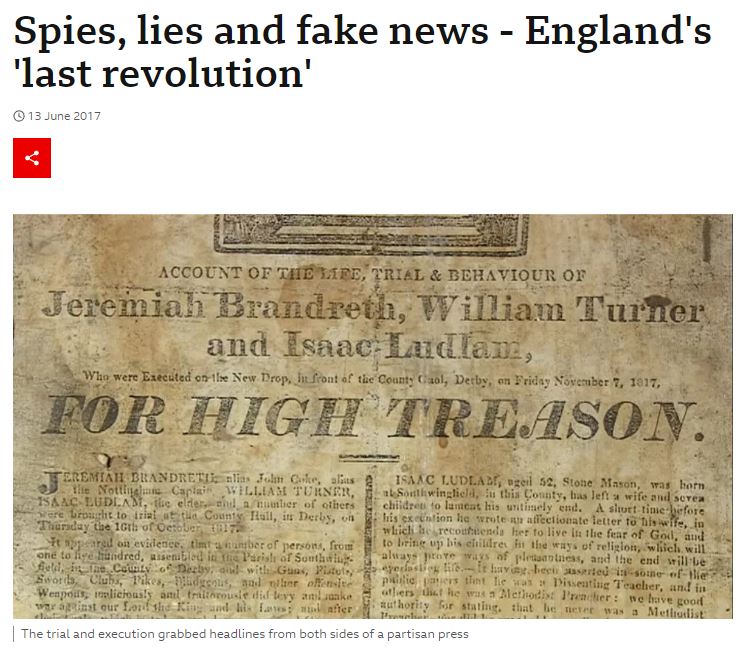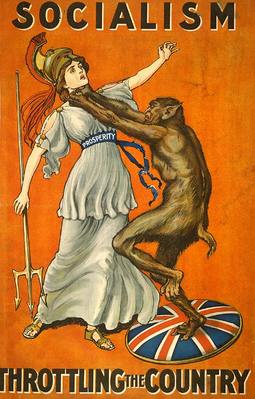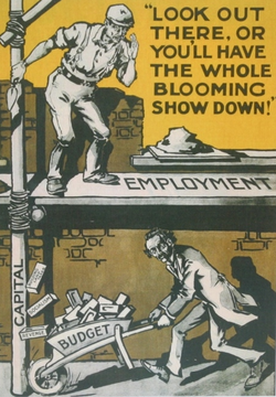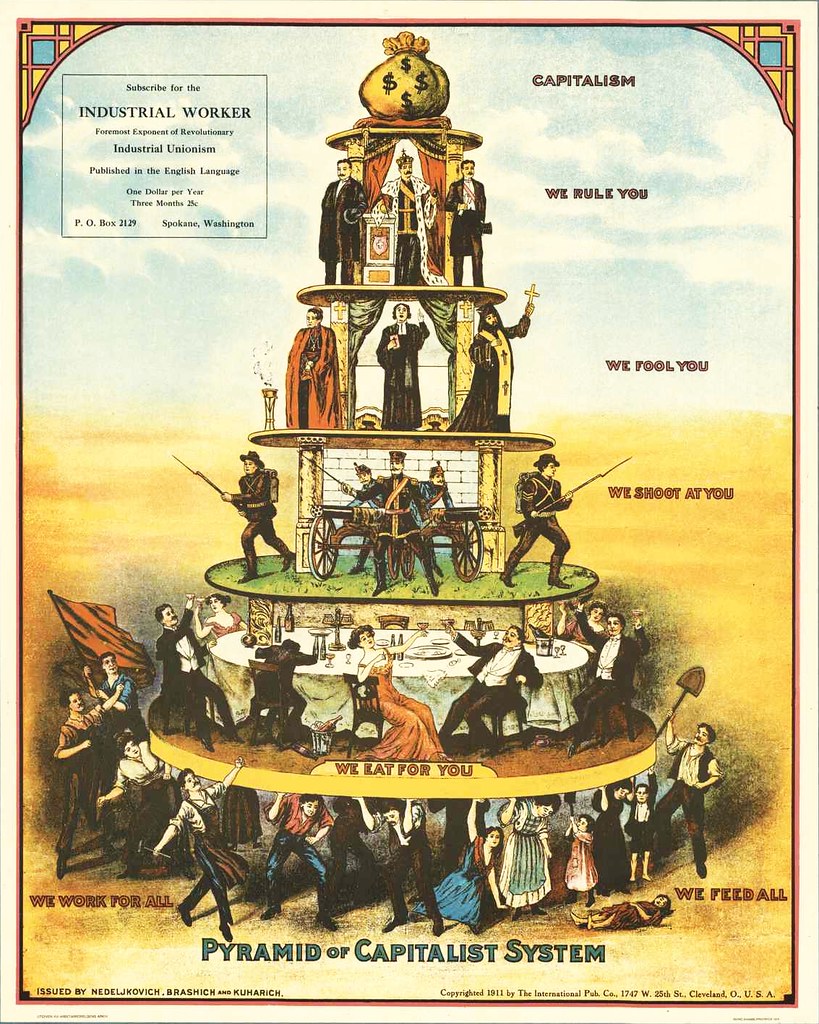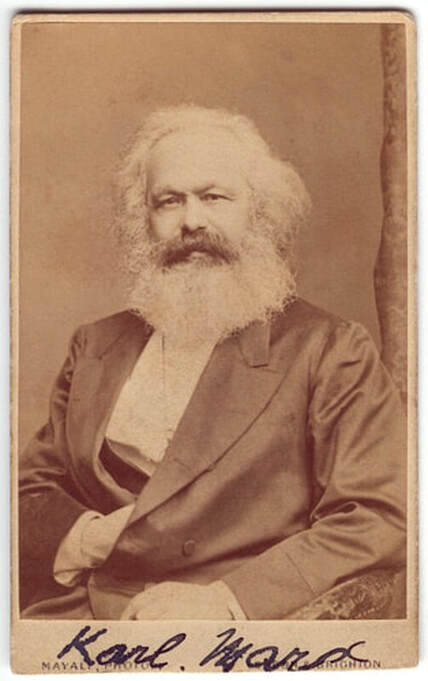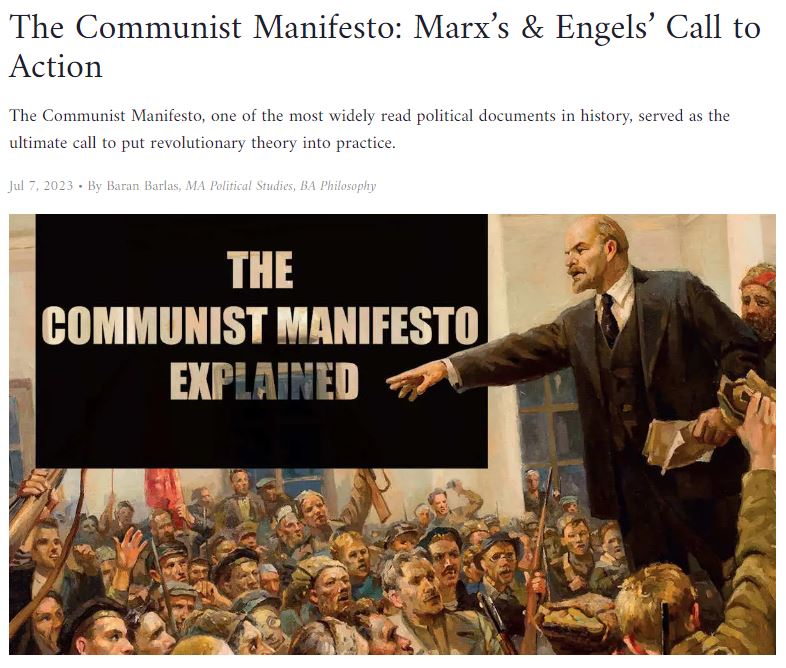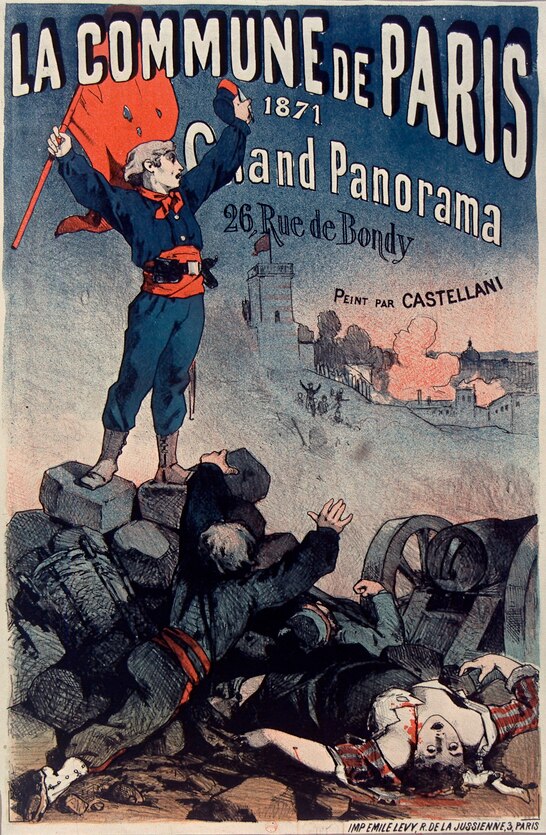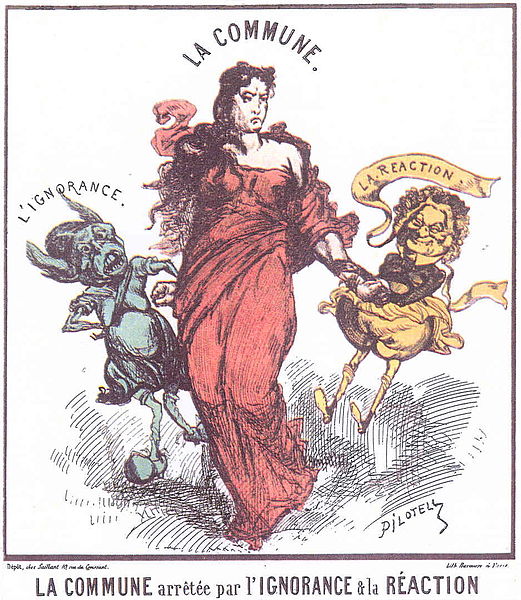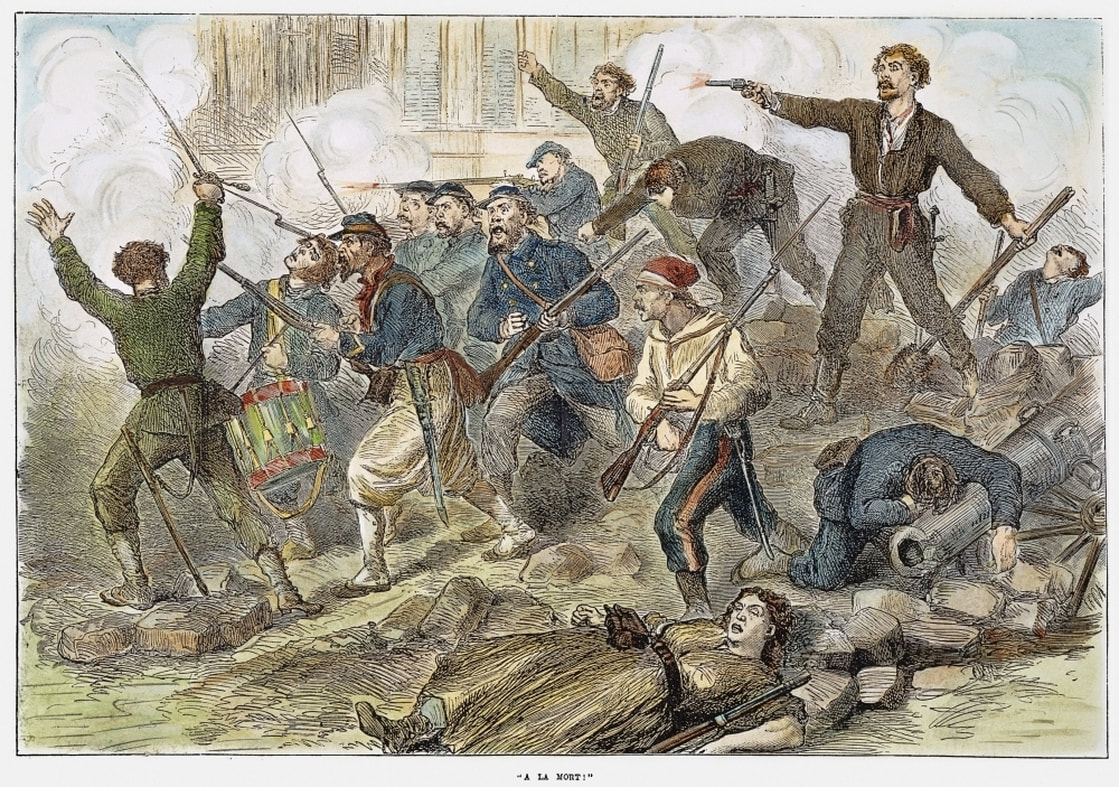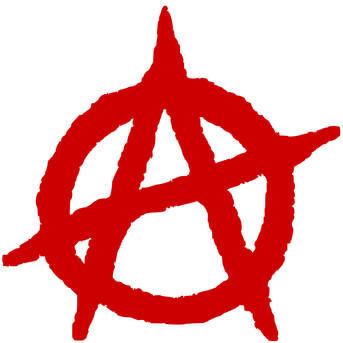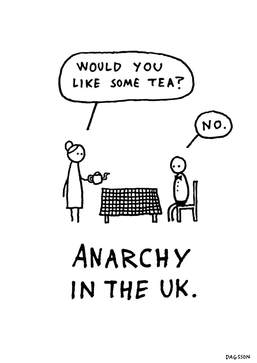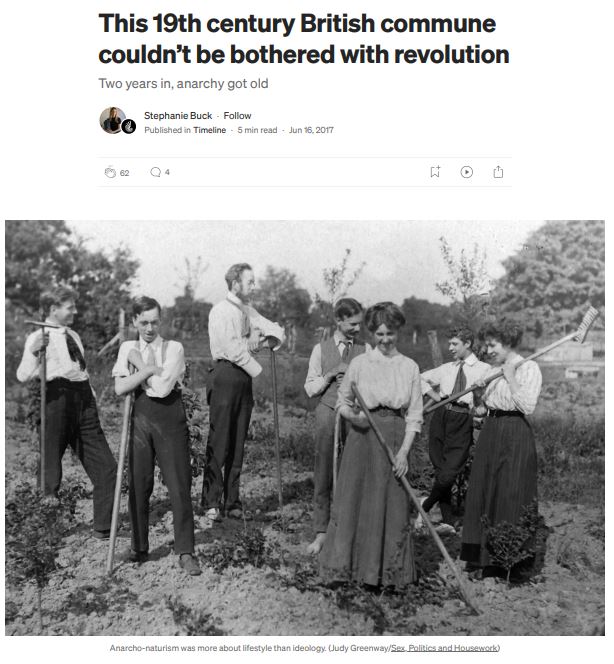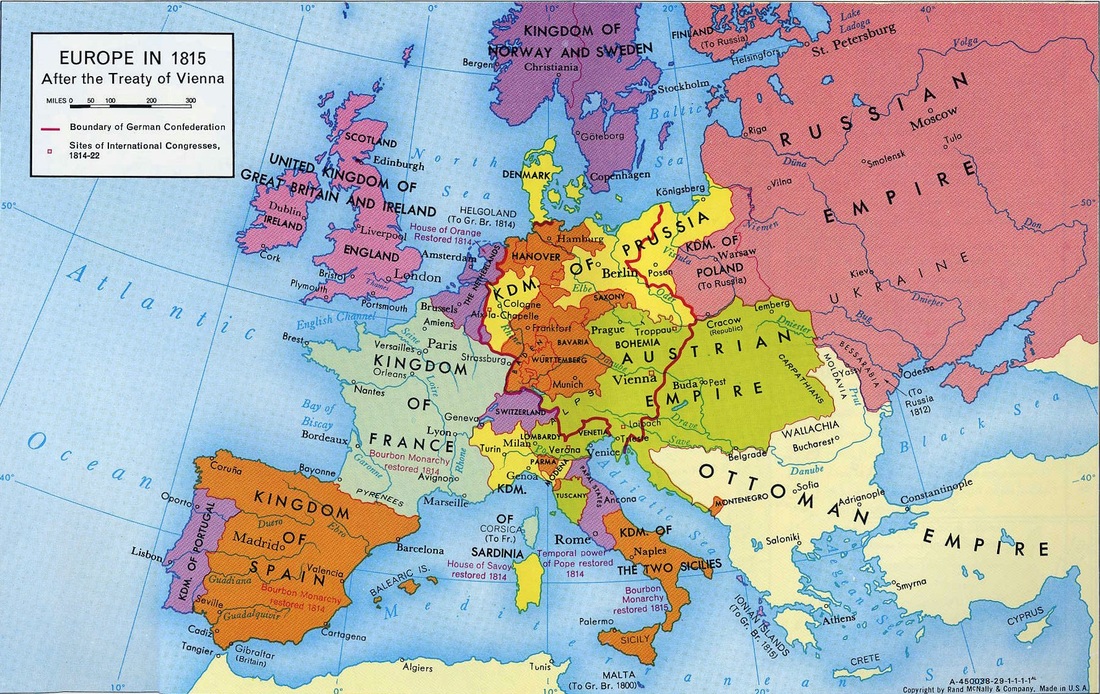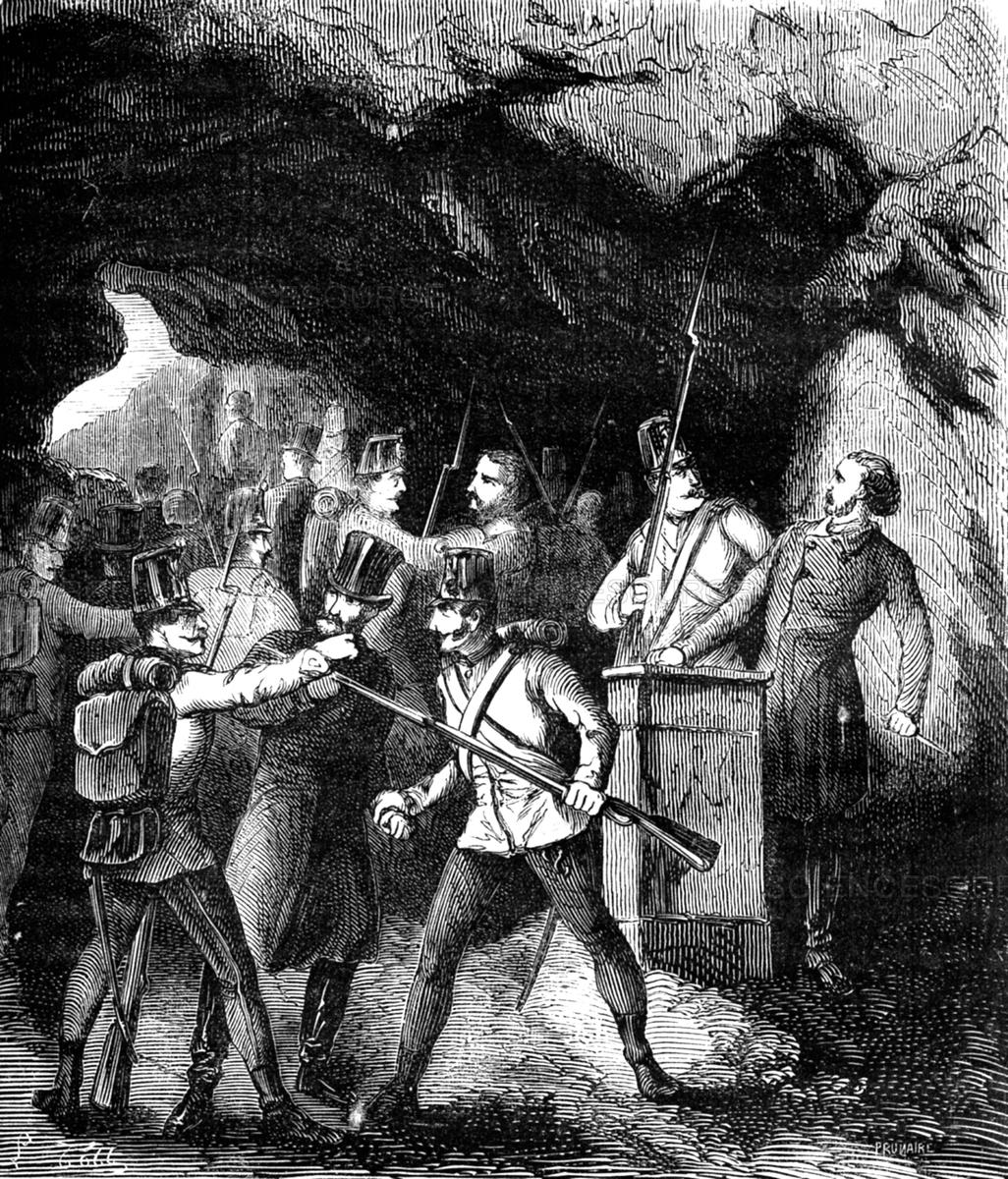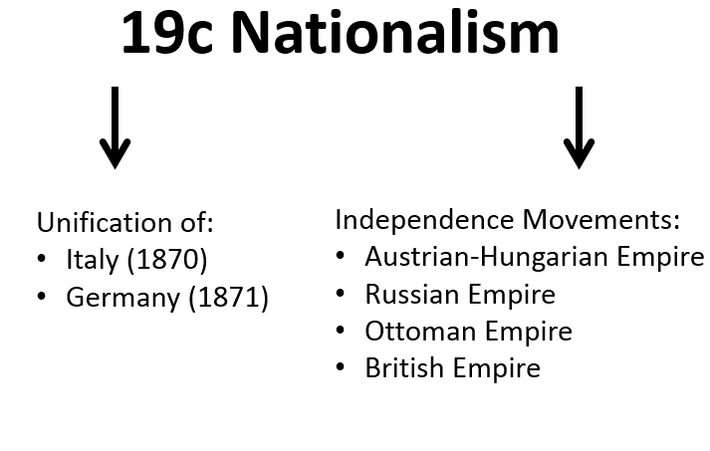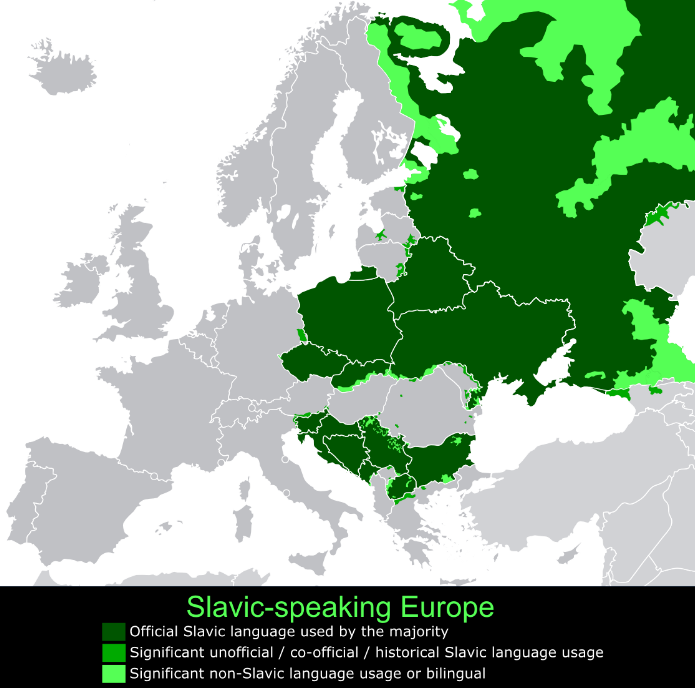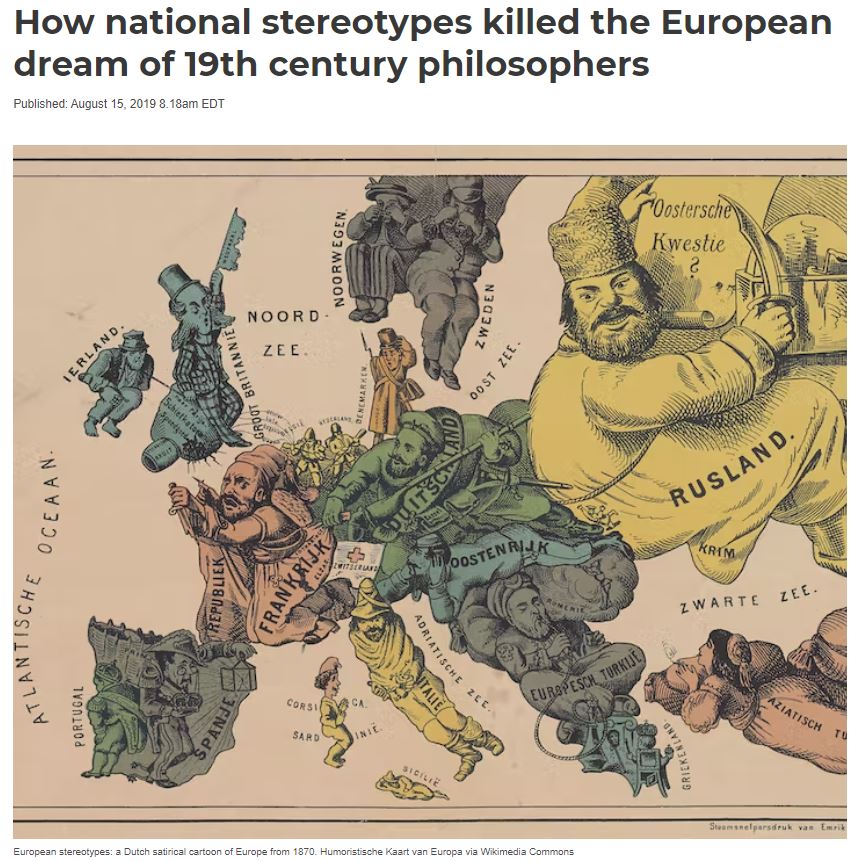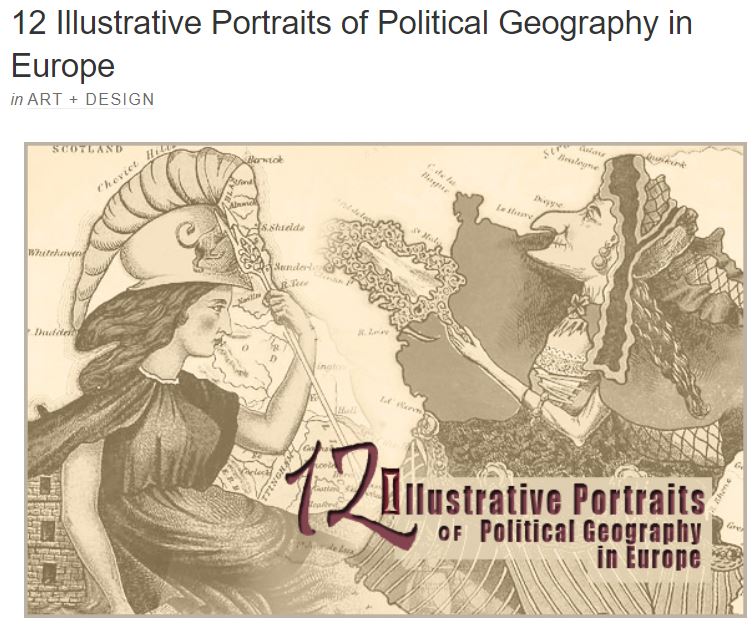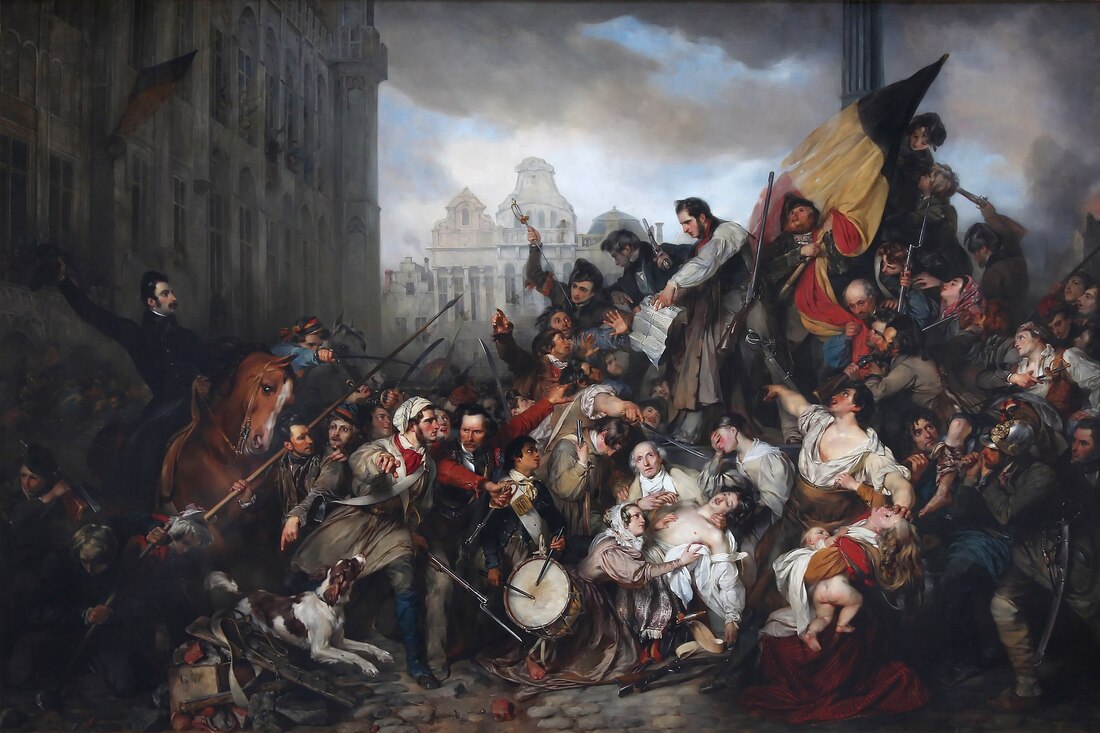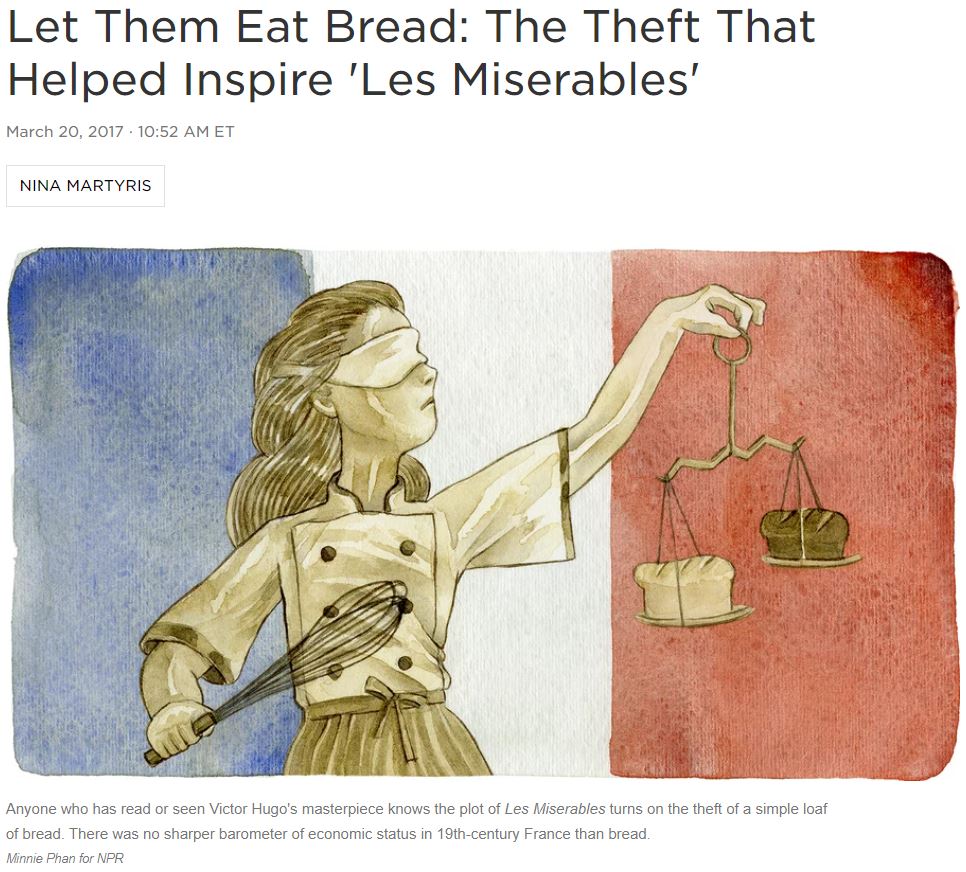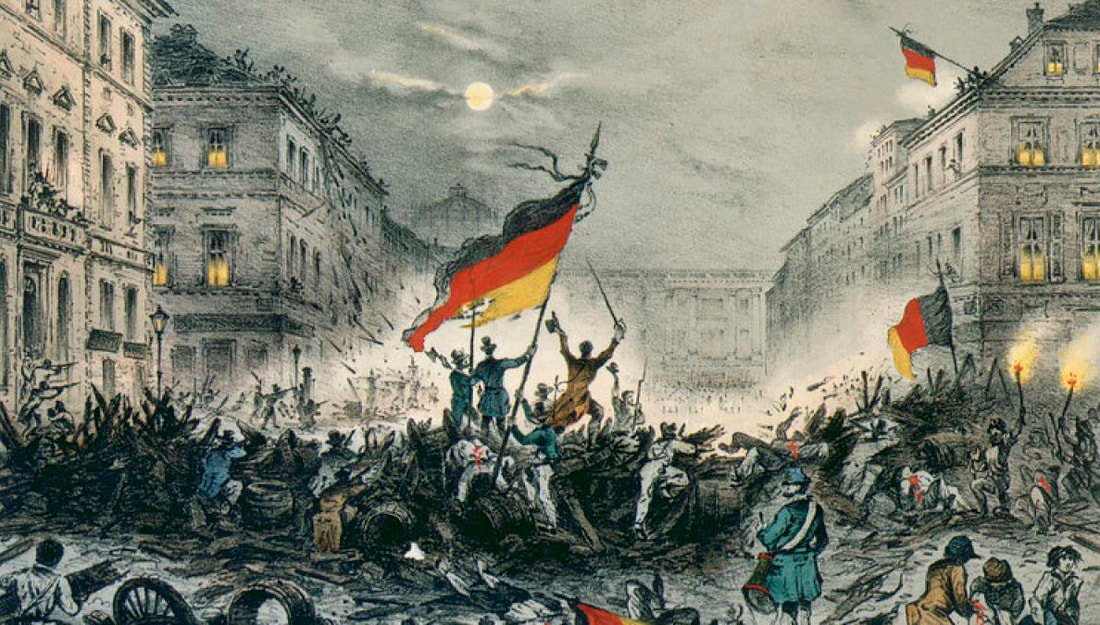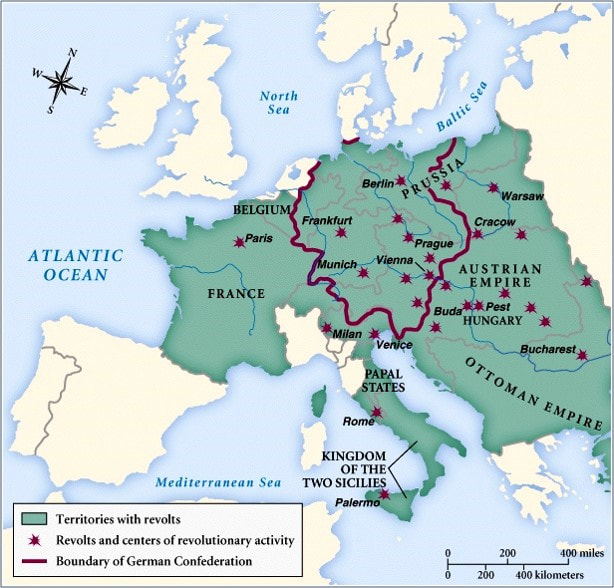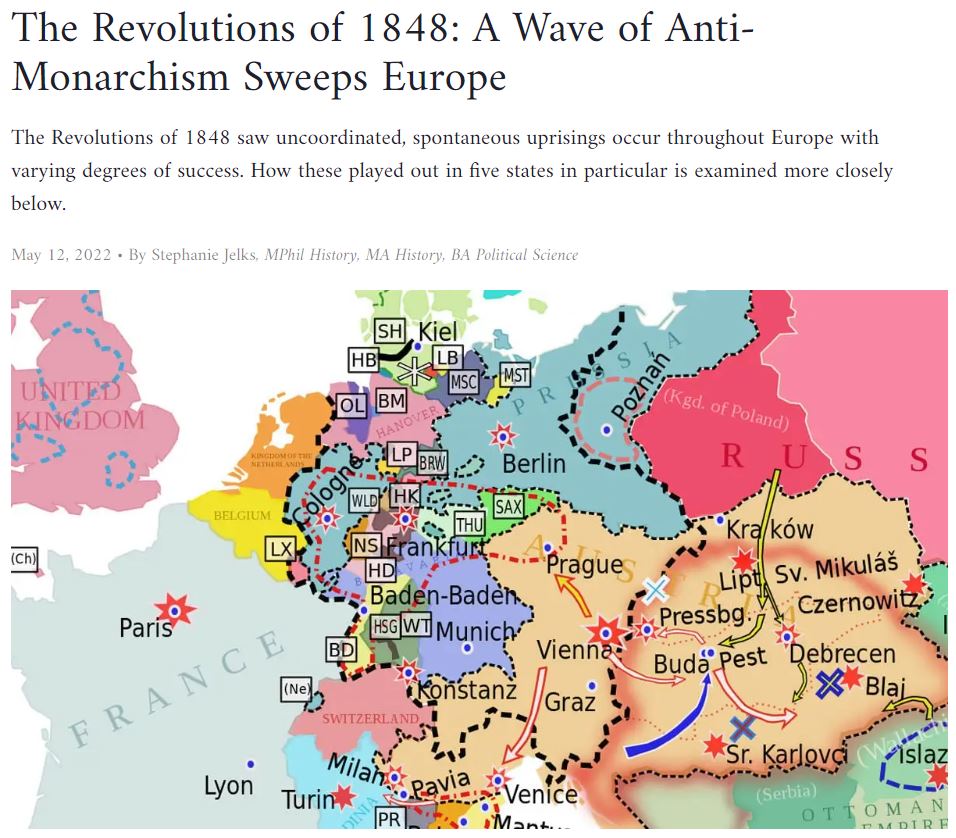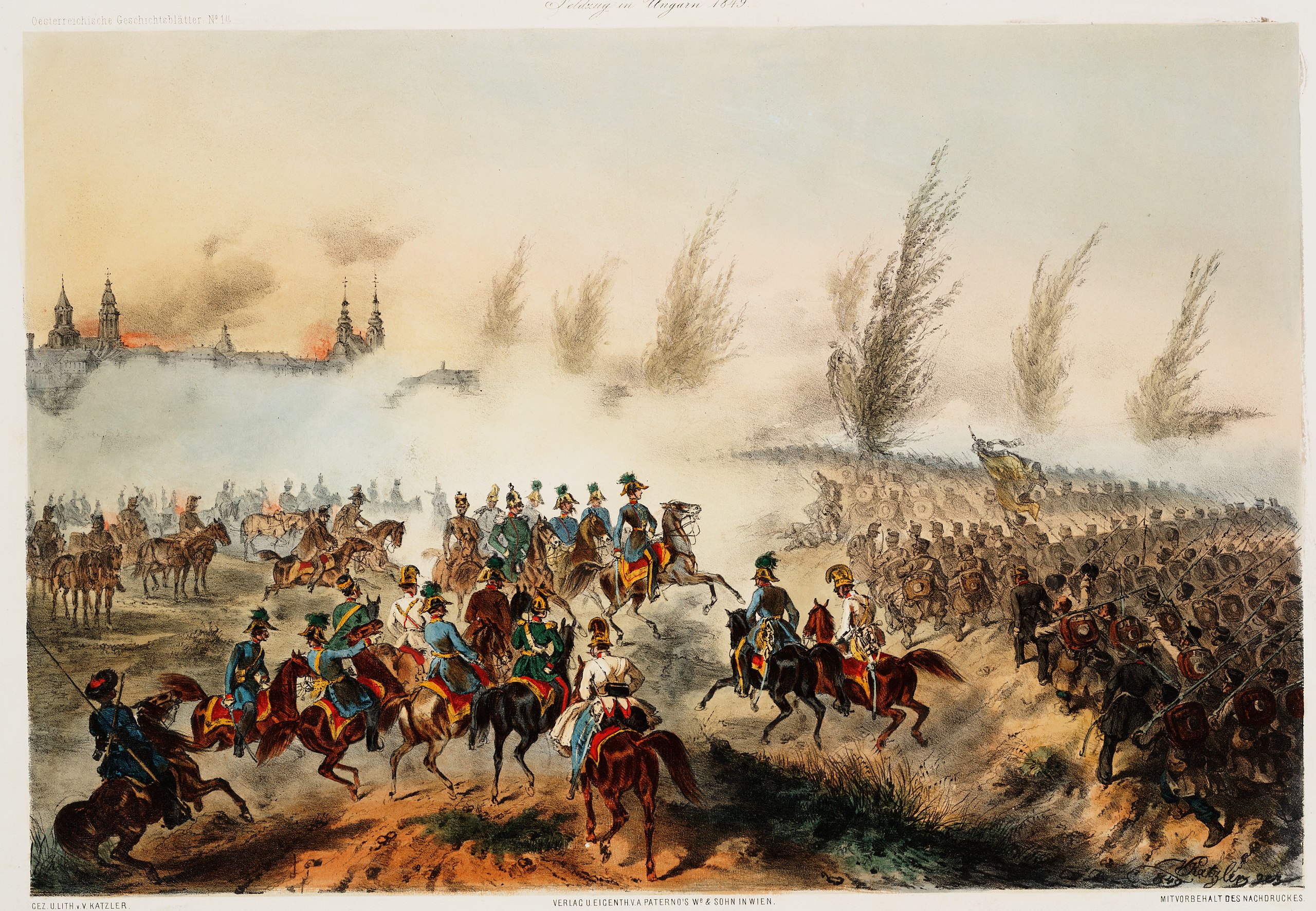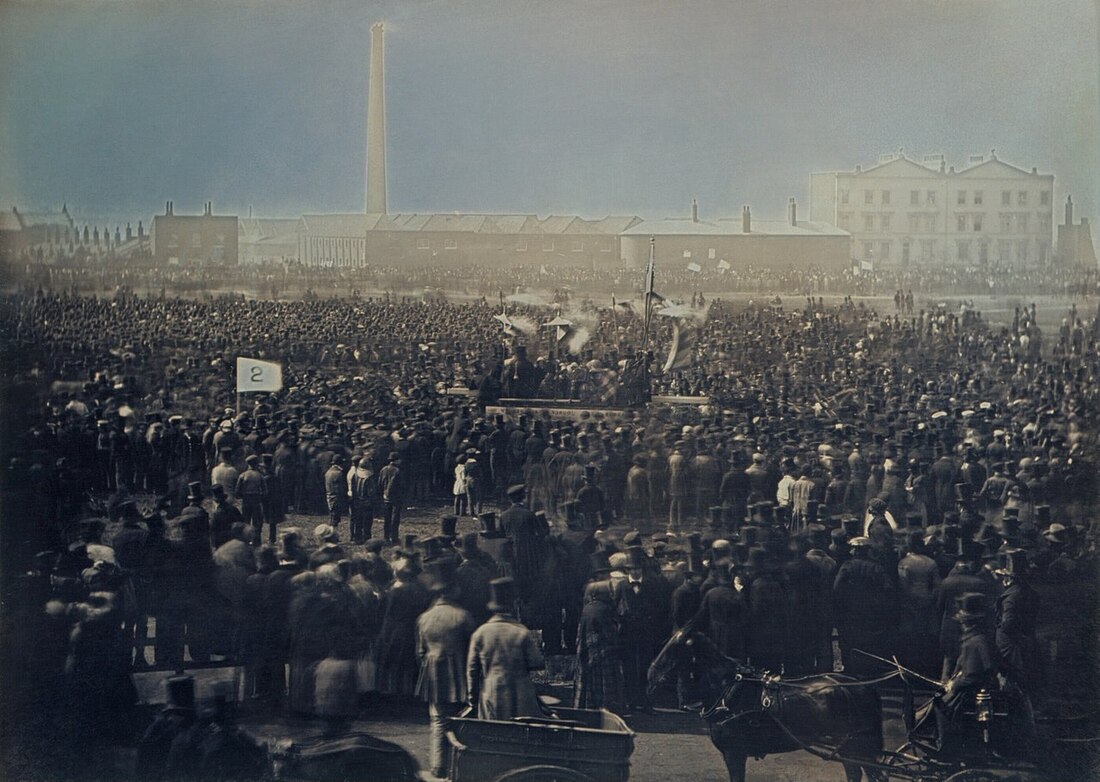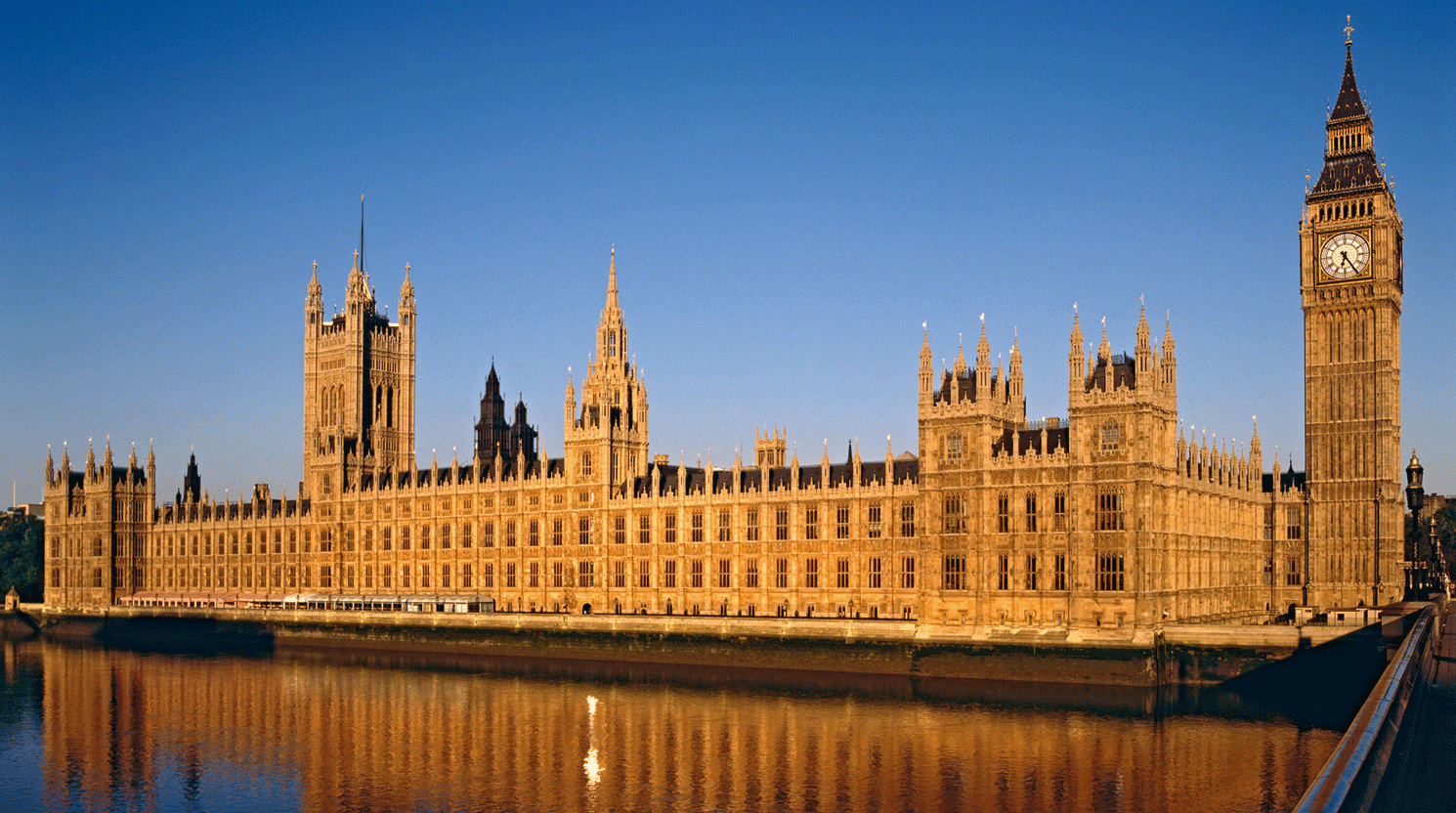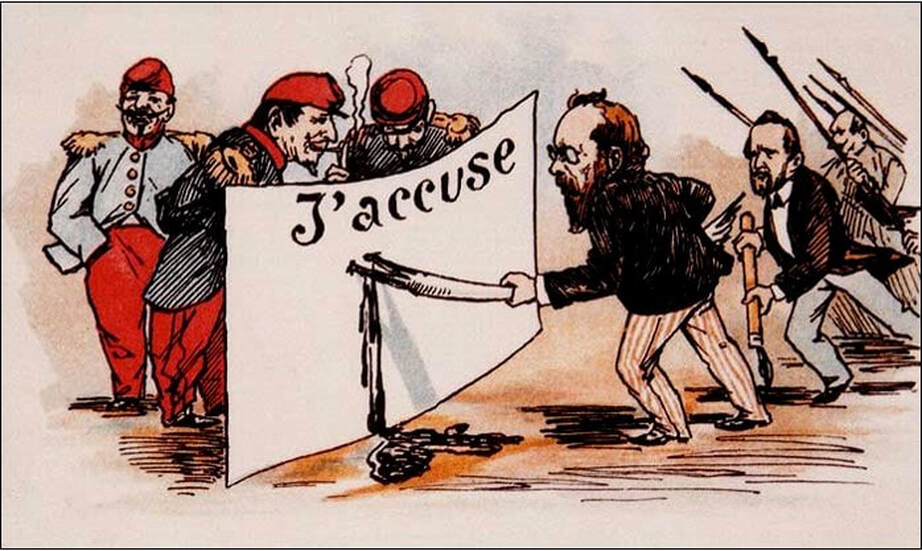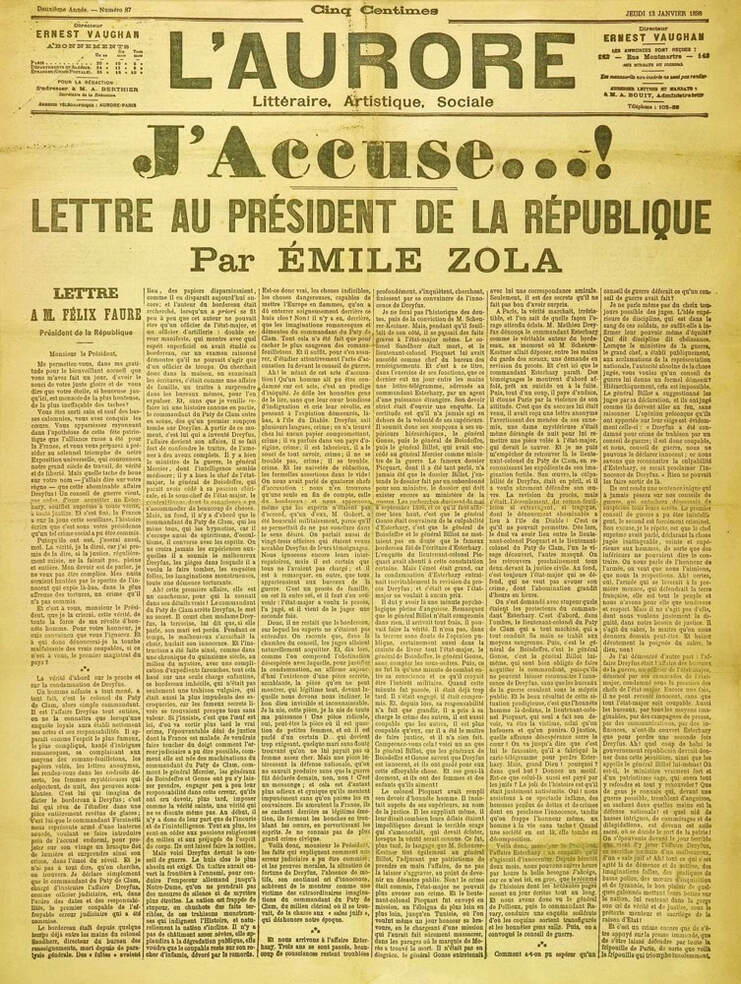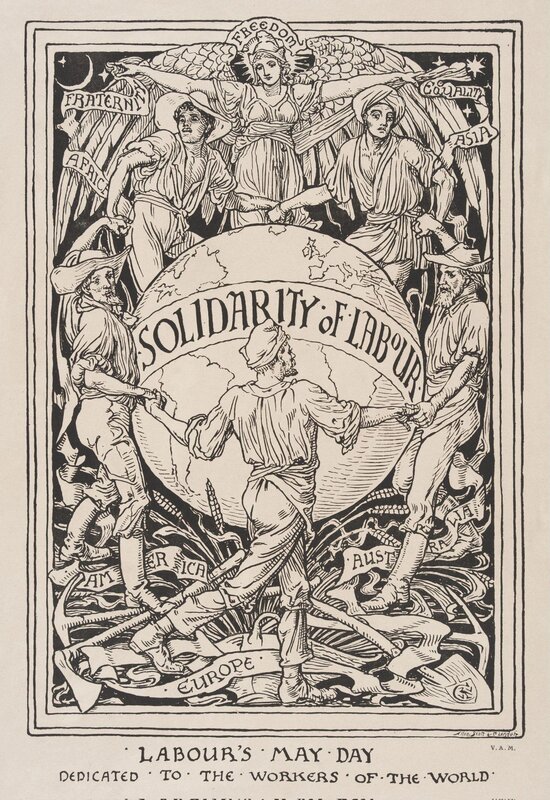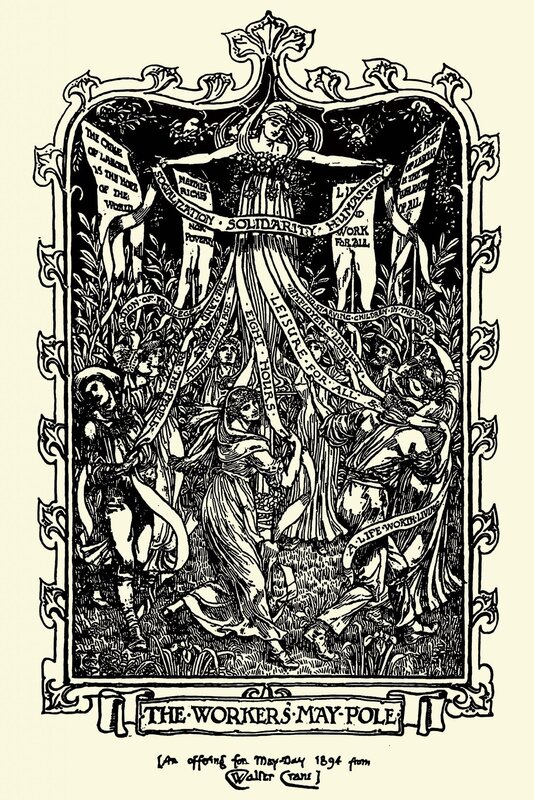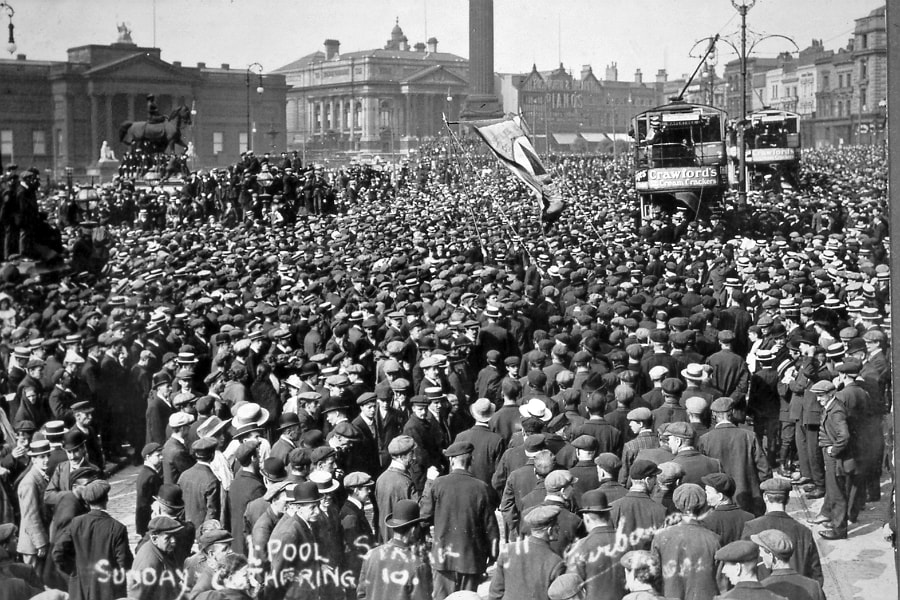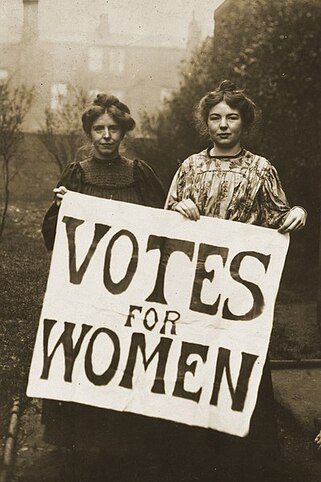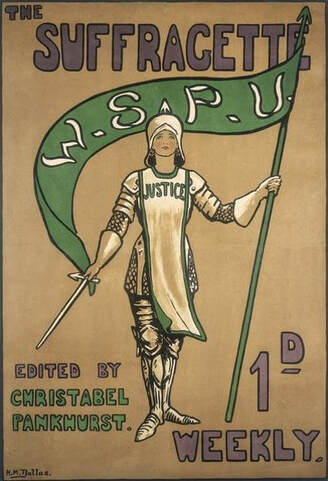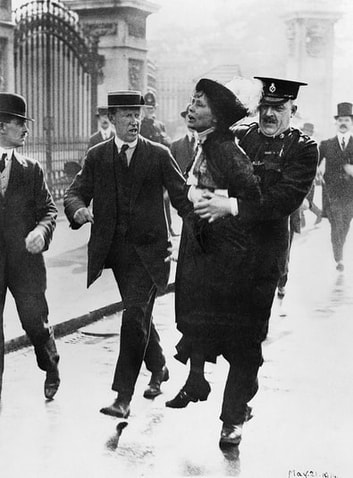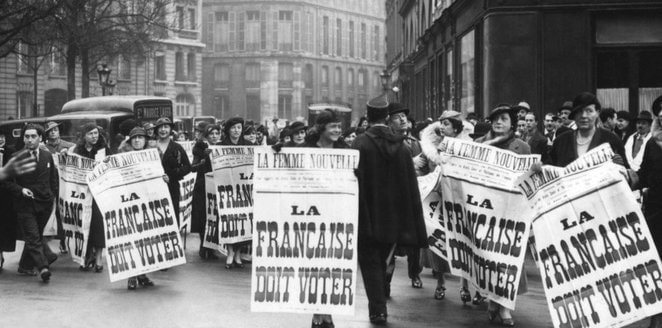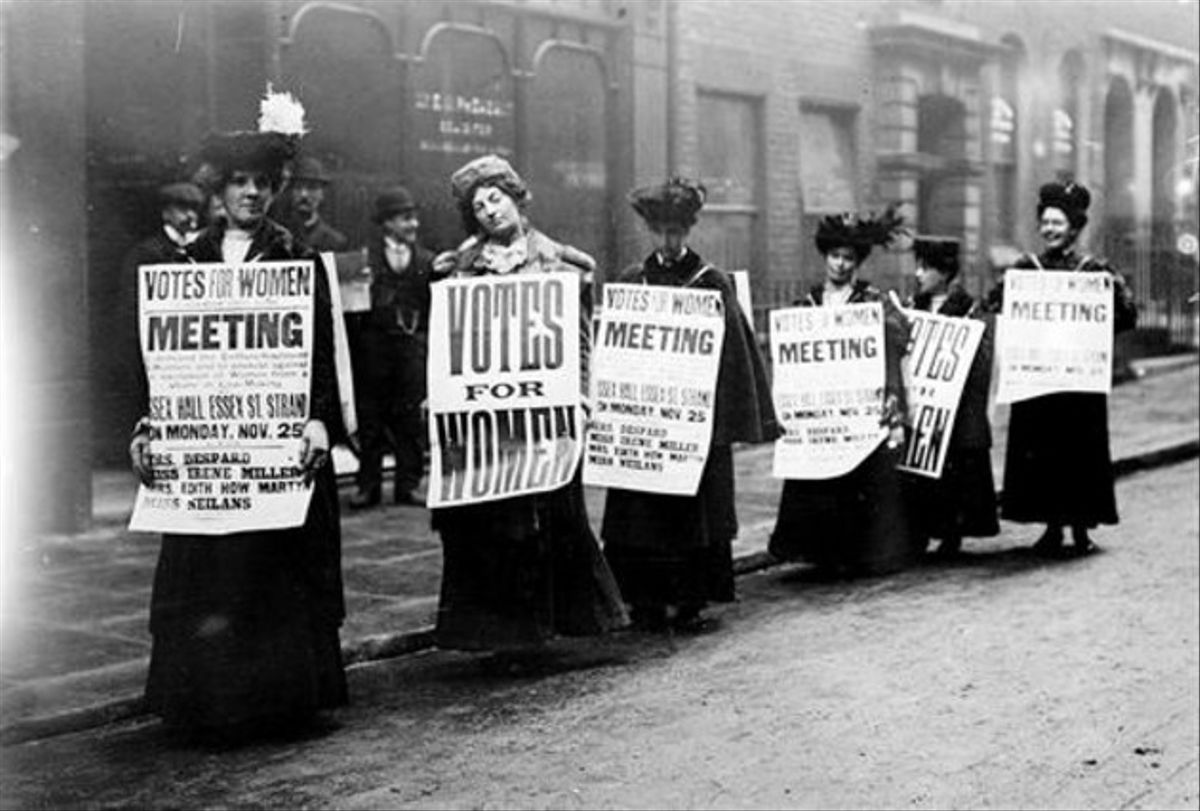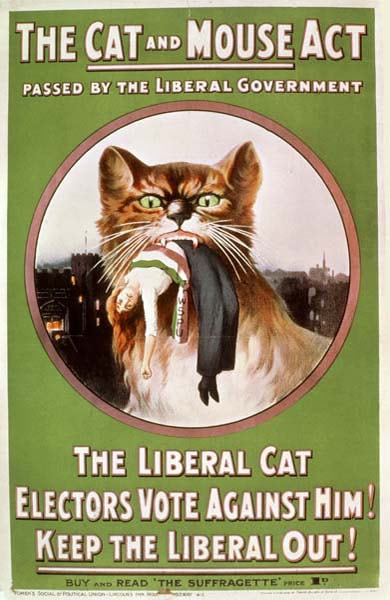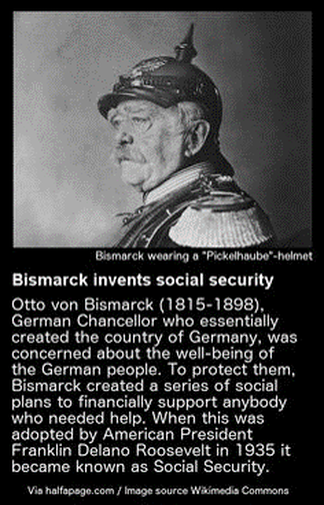Eugene Delacroix's Liberty Leading the People celebrates the July Revolution of 1830 in France.
Ideology,
c. 1815-1914 CE
Contents
The French and industrial revolutions triggered dramatic political and social consequences and new theories to deal with them. The ideologies engendered by these 19th-century revolutions—conservatism, liberalism, socialism, nationalism, and even romanticism— provided their adherents with coherent views of the world and differing blueprints for change. The responses to socioeconomic changes reached a culmination in the revolutions of 1848, but the failure of these uprisings left the issues raised by the economic, political, and social transformations unresolved well into the 20th century.
Following a quarter-century of revolutionary upheaval and war spurred by Napoleon’s imperial ambitions, the Great Powers met in Vienna in 1814–1815 to re-establish a workable balance of power and suppress liberal and nationalist movements for change. Austrian Foreign Minister Klemens von Metternich led the way in creating an informal security arrangement to resolve international disputes and stem revolution through common action among the Great Powers. Nonetheless, revolutions aimed at liberalization of the political system and national self-determination defined the period from 1815 to 1848.
The revolutions that swept Europe in 1848 were triggered by poor economic conditions, frustration at the slow pace of political change, and unfulfilled nationalist aspirations. At first, revolutionary forces succeeded in establishing regimes dedicated to change or to gaining independence from great-power domination. However, conservative forces, which still controlled the military and bureaucracy, reasserted control.
Following a quarter-century of revolutionary upheaval and war spurred by Napoleon’s imperial ambitions, the Great Powers met in Vienna in 1814–1815 to re-establish a workable balance of power and suppress liberal and nationalist movements for change. Austrian Foreign Minister Klemens von Metternich led the way in creating an informal security arrangement to resolve international disputes and stem revolution through common action among the Great Powers. Nonetheless, revolutions aimed at liberalization of the political system and national self-determination defined the period from 1815 to 1848.
The revolutions that swept Europe in 1848 were triggered by poor economic conditions, frustration at the slow pace of political change, and unfulfilled nationalist aspirations. At first, revolutionary forces succeeded in establishing regimes dedicated to change or to gaining independence from great-power domination. However, conservative forces, which still controlled the military and bureaucracy, reasserted control.
Although the revolutions of 1848 were, as George Macaulay Trevelyan quipped, a “turning point at which modern history failed to turn,” they helped usher in a new type of European politics and diplomacy.
Although the revolutions of 1848 were, as George Macaulay Trevelyan quipped, a “turning point at which modern history failed to turn,” they helped usher in a new type of European politics and diplomacy. Conservative leaders, exemplified by Napoleon III of France, used popular nationalism to advance state power and authoritarian rule.
In the second half of the 19th century, labor leaders in many countries created unions and syndicates to provide the working classes with a collective voice, and these organizations used collective action such as strikes and movements for men’s universal suffrage to reinforce their demands. Feminists and suffragists petitioned and staged public protests to press their demands for similar rights for women. The international movements for socialism, labor, and women’s rights were important examples of a trend toward international cooperation in a variety of causes, including antislavery and peace movements. Finally, political parties emerged as sophisticated vehicles for advocating reform or reacting to changing conditions in the political arena.
Nationalism acted as one of the most powerful engines of political change, inspiring revolutions as well as campaigns by states for national unity or a higher degree of centralization. Early nationalism emphasized shared historical and cultural experiences that often threatened traditional elites. Over the course of the 19th century, leaders recognized the need to promote national unity through economic development and expanding state functions to meet the challenges posed by industry.
Source: https://apcentral.collegeboard.org/pdf/ap-european-history-course-and-exam-description.pdf
In the second half of the 19th century, labor leaders in many countries created unions and syndicates to provide the working classes with a collective voice, and these organizations used collective action such as strikes and movements for men’s universal suffrage to reinforce their demands. Feminists and suffragists petitioned and staged public protests to press their demands for similar rights for women. The international movements for socialism, labor, and women’s rights were important examples of a trend toward international cooperation in a variety of causes, including antislavery and peace movements. Finally, political parties emerged as sophisticated vehicles for advocating reform or reacting to changing conditions in the political arena.
Nationalism acted as one of the most powerful engines of political change, inspiring revolutions as well as campaigns by states for national unity or a higher degree of centralization. Early nationalism emphasized shared historical and cultural experiences that often threatened traditional elites. Over the course of the 19th century, leaders recognized the need to promote national unity through economic development and expanding state functions to meet the challenges posed by industry.
Source: https://apcentral.collegeboard.org/pdf/ap-european-history-course-and-exam-description.pdf
The Political Spectrum
Objective: Explain how the European political order was maintained and challenged from 1815 to 1914.
- Conservatives developed a new ideology in support of traditional political and religious authorities, which was based on the idea that human nature was not perfectible.
- Liberals emphasized popular sovereignty, individual rights, and enlightened self-interest but debated the extent to which all groups in society should actively participate in its governance.
- Radicals in Britain and republicans on the continent demanded universal male suffrage and full citizenship without regard to wealth and property ownership; some argued that such rights should be extended to women.
- Liberalism shifted from laissez-faire to interventionist economic and social policies in response to the challenges of industrialization.
- Socialists called for the redistribution of society’s resources and wealth and evolved from a utopian to a Marxist scientific critique of capitalism.
- Marx’s scientific socialism provided a systematic critique of capitalism and a deterministic analysis of society and historical evolution.
- Anarchists asserted that all forms of governmental authority were unnecessary and should be overthrown and replaced with a society based on voluntary cooperation.
Conservatism
The Nine Sovereigns at Windsor for the funeral of King Edward VII (1910). Standing, from left to right: King Haakon VII of Norway, Tsar Ferdinand of Bulgaria, King Manuel II of Portugal, Kaiser Wilhelm II of the German Empire, King George I of Greece and King Albert I of Belgium. Seated, from left to right: King Alfonso XIII of Spain, King-Emperor George V of the United Kingdom and King Frederick VIII of Denmark. This is probably the only photograph of nine reigning kings ever taken. Colorized by Marina Amaral.
|
Edmund Burke is considered to be the Father of Conservatism.
|
Classical Liberalism
Radicalism and Social Liberalism
Peterloo Massacre, 1819
|
Critics of the People’s Budget of 1911 claimed its social benefits weren't social liberalism but socialism that would ruin the British economy.
|
RADICALISM and SOCIAL LIBERALISM
|
Socialism and Communism
Socialists despised capitalism as unjust suppression of the working class masses.
street fighting during the Paris Commune uprising of 1871
Anarchism
|
The Political Spectrum Quizlet (comprehensive)
The Political Spectrum Quizlet (abridged)
|
The Concert of Europe
Objectives:
- Explain how the European political order was maintained and challenged from 1815 to 1914.
- Explain how the development and spread of nationalism affected Europe from 1815 to 1914.
- Explain how and why various groups reacted against the existing order from 1815 to 1914.
Reform and Revolution 1815-1848: Crash Course European History #25
In the aftermath of the revolutions and upheaval in 18th and early 19th century Europe, there was a hunger for reform across the continent. Reformers like Robert Owen, Charles Fourier, and Auguste Comte proposed radical new ideas, and at the same time, regular people began to stand up and ask for greater equality, and a louder voice in how they were governed. Results were mixed, but a lot of the ideas that emerged during this time are still echoing in our world today.
The Congress System
|
1879 illustration depicting the arrest of members of Carbonari, a secret society dedicated to expelling Austrian forces from Italy and uniting the Italian peninsula, especially during the failed Revolution of 1820.
|
Early Nationalist Movements
|
July Revolution of 1830
The Episode of the September Days 1830 (on the Grand Place of Brussels) by Égide Charles Gustave Wappers (1835) depicts the Belgian Revolution. Men and women with a tattered black, yellow, and red tricolour flag form a mound around a street post in the streets of Brussels.
- In the first half of the 19th century, revolutionaries attempted to destroy the status quo.
1848 Revolutions
Revolutions of 1848: Crash Course European History #26
In 1848, Europe experienced a wave of revolutions. This week, we're learning about what the people wanted from the revolutions, who was involved, and how many of those goals were accomplished. We'll look at revolutions in the Austrian Empire, Hungary, Italy, the German States, and the region formerly known as Poland.
fighting in Berlin during the 1848 Revolutions
|
|
The Concert of Europe (comprehensive)
The Concert of Europe Quizlet (abridged)
|
Mass Politics
Objective: Explain the various movements and calls for social reform that resulted from intellectual developments from 1815 to 1914.
Modern Life: Crash Course European History #30
So, "modern" is kind of a loaded term, but today we're going to talk about modern life in Europe, as it looked around the time the 19th century turned into the 20th. We'll look at what life was like in the rapidly growing urban centers of Europe, how developments in communication and information distribution influenced the way people saw their leaders and their neighbors, and how women began making strides toward equality in this era.
Great Chartist Meeting, London, 1848
The British Houses of Parliament meet in the Palace of Westminster, London. The current neo-Gothic Romantic-style building opened in 1870, and has become a symbol of democracy.
Emile Zola's open letter to the president of France inflamed French political passions during the Dreyfus Affair (1894–1906) .
|
|
Women's Social and Political Union leaders Annie Kenney and Christabel Pankhurst, c. 1908
|
Suffragettes fought for women's right to vote.
|
|
Women campaigning for the right to vote in France and Britain.
|
|
|
Mass Politics and Reform (comprehensive)
Mass Politics and Reform Quizlet (abridged)
|
